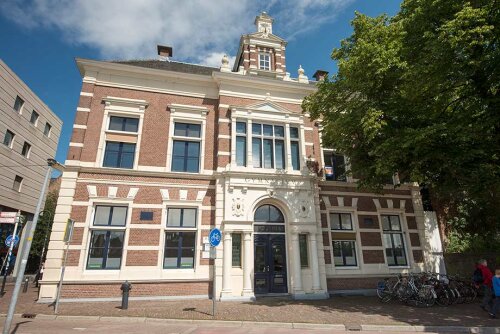Best Permanent Residency Lawyers in Delft
Share your needs with us, get contacted by law firms.
Free. Takes 2 min.
List of the best lawyers in Delft, Netherlands
About Permanent Residency Law in Delft, Netherlands
Permanent residency in the Netherlands is a legal status that allows non-EU nationals to live and work in the country on a long-term basis without needing a temporary residence permit. The rules for obtaining permanent residency are set at the national level, so the same legal framework applies in Delft as in the rest of the Netherlands. Key elements include a qualifying period of continuous legal residence, compliance with civic integration requirements, sufficient and lawful means of support, and a clean immigration and criminal history. The Immigration and Naturalisation Service - IND - is the national authority that processes permanent-residence applications. Locally in Delft you will also work with the Gemeente Delft to register your address and obtain a citizen service number - BSN - which you need for many procedures.
Why You May Need a Lawyer
Immigration law can be technical and fast-moving. People often need a lawyer when:
- An initial application for permanent residency is refused or delayed and an objection or appeal is needed. Lawyers help prepare legal submissions and meet strict deadlines.
- There are complicating factors such as criminal convictions, prior immigration violations, or concerns about public-order grounds for refusal.
- Family situations are complex, for example when seeking residency for spouses, partners, children, or elderly relatives under family-reunification rules.
- You face a risk of deportation or detention related to immigration status and need urgent legal protection.
- You are unsure whether an extended absence abroad has broken the continuous-residence requirement.
- You require advice on the interaction between permanent residency and naturalization, travel rights, social-security entitlements, or employment restrictions.
- You need help collecting, translating, and presenting documentary evidence to the IND or responding to requests for additional information.
Local Laws Overview
The Netherlands has a national legal framework for permanent residency that affects residents in Delft in the same way it affects residents elsewhere. Important local and national points to understand include:
- Qualifying period: Most applicants must have legally lived in the Netherlands for a continuous period, commonly five years, before they can apply for permanent residency.
- Civic integration: Many non-EU nationals must meet integration requirements, usually by passing the civic-integration exam or having an accepted exemption.
- Continuous residence and absences: Short absences will generally be allowed, but long or repeated absences can break the continuity requirement. Always confirm the specific limits that apply to your case.
- Income and means of support: Applicants must show they have a stable and sufficient income or lawful means of support. The exact standard can depend on the route of residence and whether you are a worker, family member, refugee, or other category.
- Public-order and criminal-law grounds: Convictions or threats to public safety can lead to refusal or revocation of permanent residency.
- Rights and restrictions: Permanent residents generally have the right to work, access education and health care, and receive many social benefits. They do not automatically get full political rights reserved for citizens, such as voting in national elections, and certain jobs or functions may require Dutch nationality.
- Revocation and loss: Permanent residency can be revoked for fraud, long absences, or serious criminality. There are legal processes to challenge revocation.
- Local formalities in Delft: You must register with the Gemeente Delft on arrival and notify the municipality of address changes. The local municipality also issues official proof of registration that you will need for many applications.
Frequently Asked Questions
What is the difference between permanent residency and Dutch citizenship?
Permanent residency allows you to live and work in the Netherlands indefinitely but does not give you full political rights of a citizen, such as voting in national elections or holding certain public-office positions that require citizenship. Dutch citizenship is obtained through naturalization and involves a separate legal process, possible renunciation of another nationality, and additional requirements.
How long do I need to have lived in the Netherlands to apply for permanent residency?
The typical qualifying period is five years of continuous legal residence. Some specific routes, such as certain refugee statuses or family situations, may have different time frames. Always check your particular category and confirm with the IND or a lawyer.
Do I have to speak Dutch or pass an exam?
Many non-EU applicants must meet civic-integration requirements, which usually include passing the inburgering or integration exam. Some applicants are exempt or have alternative pathways - for example, recognized refugees, highly educated persons, or those with certain diplomas may qualify for exemptions. A lawyer can clarify whether you need to take the exam.
Can my permanent residency application be refused? If so, why?
Yes. Common grounds for refusal include failure to meet the residence-duration requirement, insufficient income or means of support, failure to meet integration requirements, criminal convictions or other public-order concerns, and incomplete or fraudulent documentation. You usually have the right to object or appeal a refusal within strict deadlines.
Will permanent residency be revoked if I leave the Netherlands for a long time?
Long or repeated absences from the Netherlands can jeopardize your continuous-residence record and may lead to loss of permanent-residency status. The rules depend on the type of permit and your individual circumstances. If you plan extended travel or a move abroad, get legal advice before leaving.
Can my family members get permanent residency as well?
Family members may qualify through family-reunification rules or by building their own qualifying residence history. Spouses and dependent children are commonly eligible if the sponsor meets income and housing requirements and other conditions are satisfied. Each case is different, so consult the IND rules or a lawyer for your family situation.
What documents do I need to apply for permanent residency?
Typical documents include passport or travel document, proof of legal residence history in the Netherlands, proof of identity, civic-integration proof or exam results, evidence of sufficient income, registration with the municipality of Delft, and any documents related to criminal records or previous immigration decisions. Documents often must be translated and legalized or apostilled if issued abroad.
How long does the IND take to decide on a permanent-residency application?
Processing times vary depending on case complexity and IND workload. Straightforward cases can be resolved within a few months, while complex or incomplete cases take longer. If the IND requests additional documents or interviews, that will extend the timeline. A lawyer can help prepare a complete file to reduce delays.
Can I work while my permanent-residency application is pending?
Whether you can work depends on your current residence status. If you already hold a residence permit that allows work, you may continue working while applying for permanent residency. If your permit does not allow work, you generally cannot start employment until your status changes. Consult the IND rules or a lawyer to confirm your right to work.
What are my options if my application is refused?
If the IND refuses your application you typically have the right to file an objection and, if needed, pursue an appeal to the administrative courts. There are strict deadlines for filing objections and appeals. A lawyer can help evaluate appeal prospects, prepare legal arguments, and represent you in court or in negotiations with the IND.
Additional Resources
These national and local bodies and organizations are useful sources of information and support for permanent-residency matters in Delft:
- Immigration and Naturalisation Service - IND
- Gemeente Delft - municipal registration and local services
- Dienst Uitvoering Onderwijs - DUO - for civic-integration exams and related matters
- Juridisch Loket - national legal advice desk for initial legal guidance
- Raad voor Rechtsbijstand - Legal Aid Board for information about subsidized legal help
- VluchtelingenWerk Nederland - Dutch Council for Refugees - support for refugees and family reunification
- VreemdelingenWerk Nederland - organizations supporting migrants with immigration matters
- Local legal clinics or student legal aid projects in Delft, including university legal advice clinics
- Dutch administrative courts and procedural guides for objections and appeals - for formal challenge routes
Next Steps
If you think you need legal assistance with permanent residency in Delft, follow these steps:
- Gather basic documents: passport, current residence permit, proof of registration with Gemeente Delft, employment and income records, and any existing IND correspondence.
- Check basic eligibility: count your lawful residence years, review whether you have met integration requirements, and note any long absences or criminal records that could affect your case.
- Seek initial advice: contact Juridisch Loket or a local immigration-law lawyer for a first consultation. Ask whether you qualify for subsidized legal aid through the Raad voor Rechtsbijstand.
- Choose a lawyer: if you hire a lawyer, request a clear written engagement letter explaining fees, scope of work, and timelines. Prefer lawyers who specialize in immigration law - advocaat immigratierecht.
- Act quickly on deadlines: if you have a decision, note objection and appeal deadlines and act promptly. Missing deadlines may forfeit legal remedies.
- Prepare your application or appeal: work with your lawyer to collect, translate, and authenticate documents. Provide a clear timeline of your residence and any supporting evidence for integration and income.
- Stay informed and registered: keep your address registration in Gemeente Delft current and respond to IND requests promptly.
If you face an urgent situation such as an imminent deportation order, detention, or enforced removal, contact a lawyer immediately. Time is critical in urgent immigration matters, and early legal intervention can preserve your options.
Lawzana helps you find the best lawyers and law firms in Delft through a curated and pre-screened list of qualified legal professionals. Our platform offers rankings and detailed profiles of attorneys and law firms, allowing you to compare based on practice areas, including Permanent Residency, experience, and client feedback.
Each profile includes a description of the firm's areas of practice, client reviews, team members and partners, year of establishment, spoken languages, office locations, contact information, social media presence, and any published articles or resources. Most firms on our platform speak English and are experienced in both local and international legal matters.
Get a quote from top-rated law firms in Delft, Netherlands — quickly, securely, and without unnecessary hassle.
Disclaimer:
The information provided on this page is for general informational purposes only and does not constitute legal advice. While we strive to ensure the accuracy and relevance of the content, legal information may change over time, and interpretations of the law can vary. You should always consult with a qualified legal professional for advice specific to your situation.
We disclaim all liability for actions taken or not taken based on the content of this page. If you believe any information is incorrect or outdated, please contact us, and we will review and update it where appropriate.









